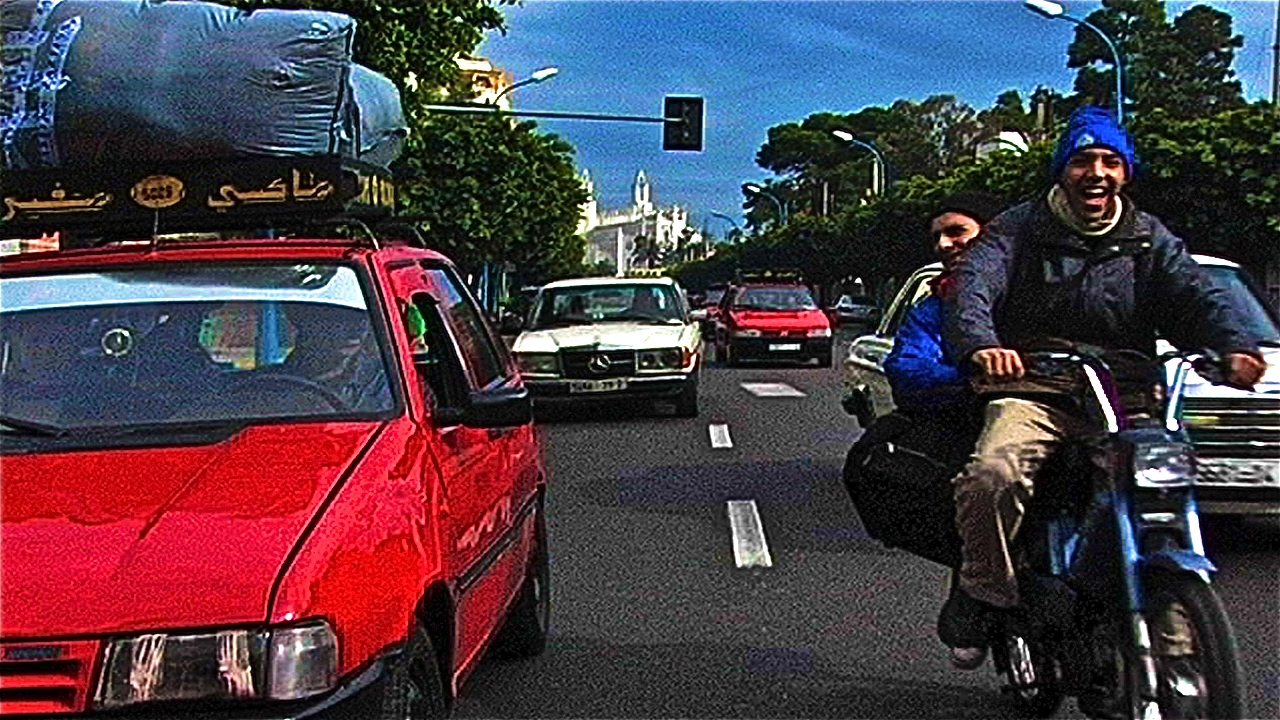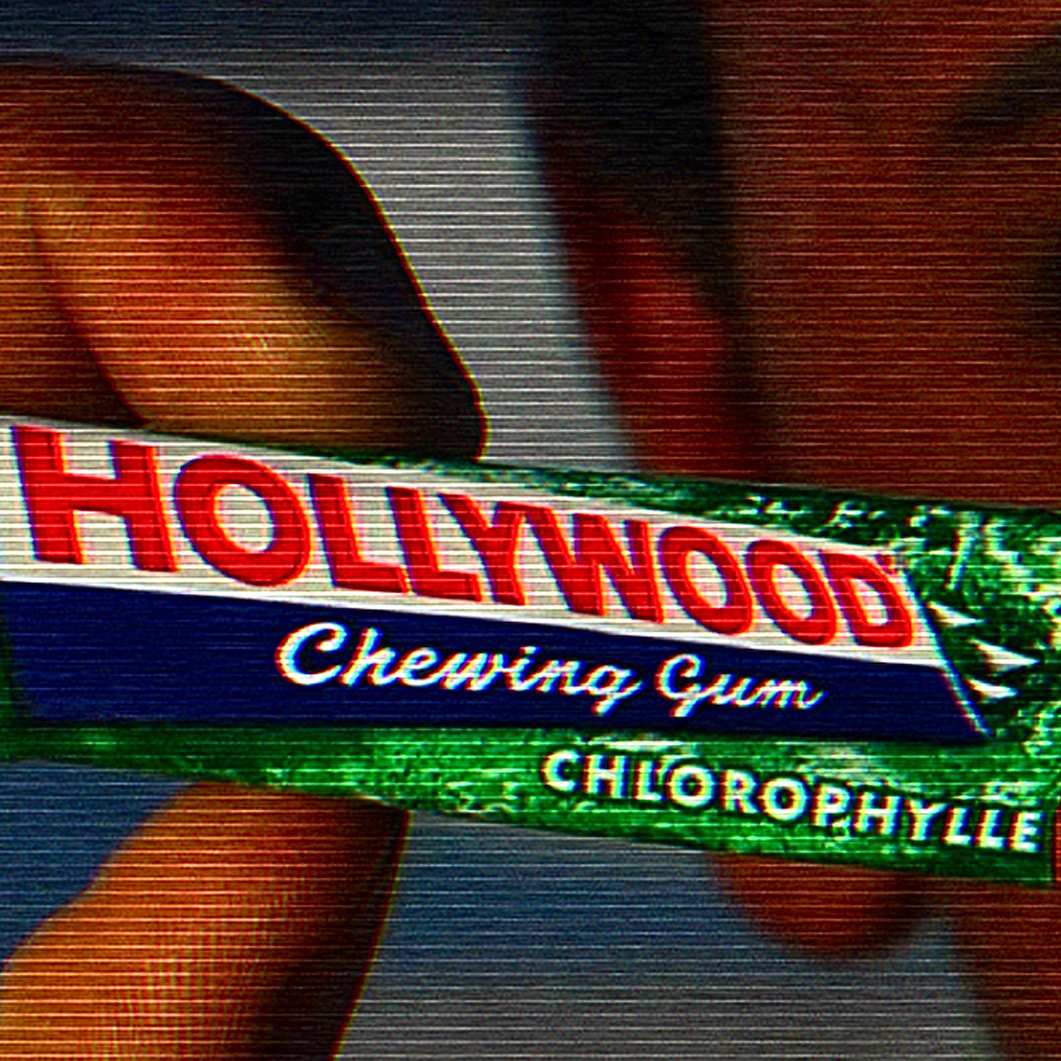A cross-cultural journey from Casablanca to Hollywood, and back again
Once upon a time, there were two kids named Hassan and Abdel. This is their story.
Hassan and his buddy Abdel are two ‘authentic young Moroccans’ (according to the film’s American producers) in their late teens, residing in the oft-celebrated city of Casablanca. A University student engrossed in compiling his dissertation, Hassan is investigating the portrayal of Casablanca, as well as Morocco as a whole in Hollywood cinema. As he explains early on, the influence of Hollywood can be seen everywhere in his city, from the films watched by common folk, to the names adorning eateries and chewing gum wrappers. However, Casablanca is the only city Hassan really knows about, and as his mother aptly remarks, there’s much more to be witnessed throughout the country. Abdel, on the other hand, has different issues at hand. After receiving a call from his relatives in the small town of Jorf informing him of his uncle’s illness, he decides that if he’s ever to seem him again, it’s now or never. Thus, with their interests mutually aligned, the two happy-go-lucky youngsters set out on a Kerouac-like road trip (think On the Road in the Sahara) to Jorf and back, documenting their [mis]adventures along the way.
With only the bare necessities at hand, the boys set off in a taxi towards Meknes, the first stop on their ‘odyssey’. In this rather spartan town (as per their footage), after visiting the makeshift grave of a deceased relative of Abdel’s, the boys attend an evening of traditional gnawa music, and Hassan begins compiling research for his thesis, asking locals about their favourite Hollywood actors. Strangely, in this town, almost everyone seems to have a penchant for B-movie action heroes, Charles Bronson in particular. While at first Meknes seems like somewhat of an anomaly, as they journey onwards, they find that the Moroccan fascination with armed musclemen is more widespread than they thought. Why? Perhaps the answer is simpler than some would deign to think. ‘[Chuck Norris] is good and fights against evil … he protects the weak’, says one interviewee gleefully.
However, while the responses Hassan receives regarding Hollywood films and actors from the locals he and Abdel encounters are humorous, his own experiences with the American film industry haven’t been as sweet. Interspersed in the film among dreamlike scenes of tranquil Moroccan villages, the Atlas mountains, and the countryside are a number of expertly-curated scenes from black-and-white Orientalist Hollywood films (as well a string of recent ones as well), which deal not only with the boys’ native Morocco, but the Arab world in general. From obscure titles to classics, the clips candidly depict a casually racist and condescending view of Arabs (which Hassan likens to the Western portrayal of Native Americans) from an American standpoint, replete with slurs such as ‘rag-head’, ‘towel-head’, and ‘Ay-rab’, (and a host of others, mostly revolving around the subject of headgear), as well as depictions of ‘traditional’ Arab characters, including the proverbial Abdul. ‘Pipe down, towelhead’ says Hassan, musing about a scene from the movie Jewel of the Nile in the midst of an old Hollywood set in Ouarzazate. ‘I was only seven years old. But when I heard those words … I stopped laughing.’

Trekking through the Moroccan countryside to the songs of Rachid Taha’s Diwan 2 – the album from which most of the film’s tunes were culled, aside from the few odd Malian blues and gnawa tracks – the film reaches a quasi-climax in Jorf, where Abdel goes in search of his estranged uncle. Time is not on Abdel’s side, however, as he soon discovers after his arrival that for the past four days, his uncle has been lying beneath the earth with his face turned towards Mecca, and his relatives have robed themselves in black. Not having had a father, and now having lost the closest thing he ever had to one, all Abdel is left with is a cassette his uncle recorded for him, full of admonitions, appeals, and life lessons. After a brief and somewhat gloomy stay in the arid city, with its historic mud labyrinths and passageways, the two begin their trip back towards their native Casablanca, albeit opting for a slightly different route that takes them to shores of Essaouira. However, after finding themselves short of cash in the city, they soon decide it’s time to return home.
You only realise how grand and wonderful a place can be once you go and see it for yourself
Although at the outset, the filmmay merely appear to be a documentary about the lives of two ordinary Moroccans, it’s about so much more. Casablanca Mon Amour presents a powerful critique of the rather odd affair between Hollywood and the Arab world, from both ends of the spectrum. Despite being the subject of racism, as well as fodder for Neo-Orientalists, Moroccans still seem to harbour affection for the American film industry; they adore its stars, are somewhat financially dependent on films shot in Morocco (especially in the town of Ouarzazate), and as evidenced by their film festival, aspire towards all things Hollywood. In one particularly telling scene, an individual from the festival expresses his disdain towards its Americanisation, emphasising the need to promote local films and talent. As he remarks:
I see posters of Johnny Depp, Spielberg … when are we going to host our festival and represent ourselves on an international level? We have to also promote our productions in our own festival here. A country without its own art will never have a history.
The Americans aside, however, Hassan also realises at the end of his journey that he too had been somewhat of an ‘accidental’ Orientalist. As his mother mentions at the beginning of the film, and as Abdel’s uncle posthumously warns in his tape, one has to travel in order to truly understand places for what they are, otherwise one can at best harbour imaginations and fantasies – a far cry from the truth. ‘Seeing my own country this way for the first time, I realised even I had only a TV idea … a Hollywood idea of what it was, or might be like.’
Upon arriving in Casablanca, Hassan and Abdel part after a dry handshake, and go their separate ways. Reminiscing about life and their travels, Hassan, despite his love of cinema, admits the shortcomings of the motion picture, and the importance of experiencing things first-hand. As he reflects, overlooking the satellite-ridden rooftops of his beloved city, movies can give one an idea of a place, but they can never capture ‘the aroma, the scent, the smell, of sweet wind in the mountains and cold minty snow air’.
Perhaps Abdel’s uncle said it best: You only realise how grand and wonderful a place can be once you go and see it for yourself.

